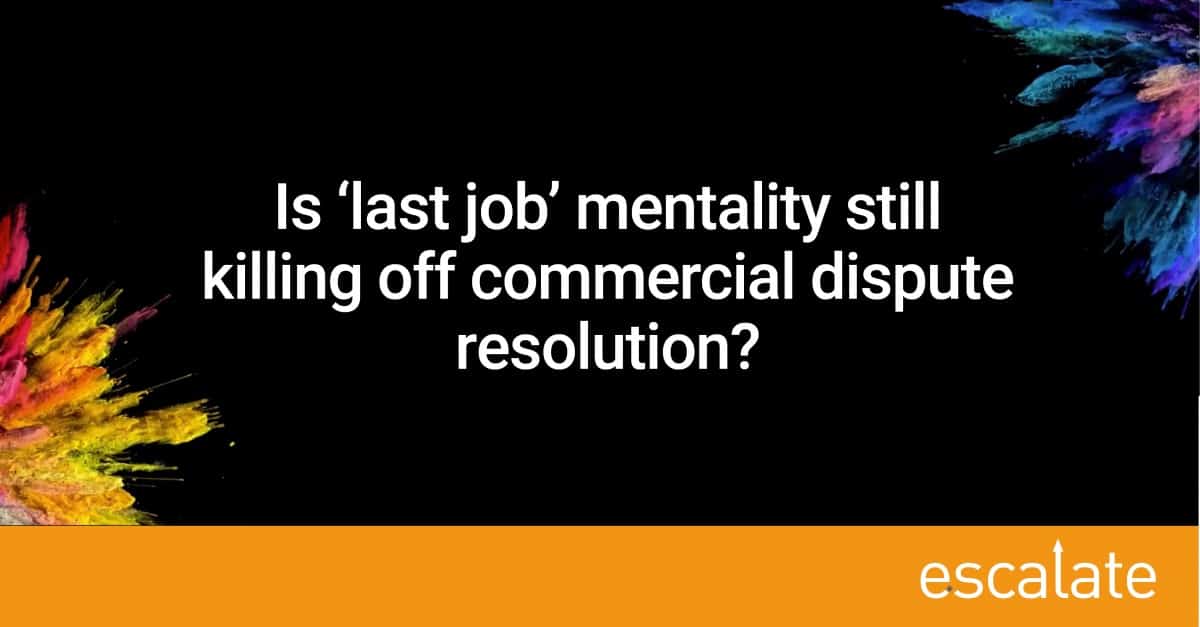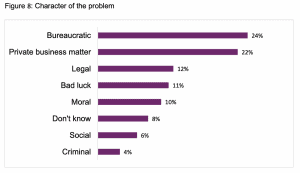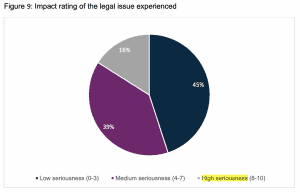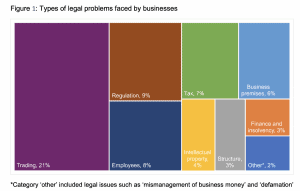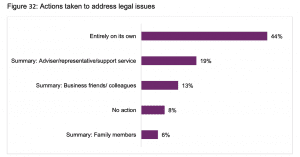Over two years ago I sat down to write an article about how the litigation system was undoubtedly broken, and why the ‘last job’ mentality is such a problem for the industry, particularly the dispute resolution sector.
Fast forward to 2022, and has anything changed since then?
The problem with a ‘last job’ mentality in the litigation market
Judging by some of the responses to the most recently published Legal Services Board report, evidently not. The report covers the findings of a survey of 10,228 small businesses in England and Wales, so it’s a fairly comprehensive study. To save you from reading the full 100 pages, I’ve recapped the main findings here:
- Around one-third (32%) of small businesses experience a legal issue annually, which is the equivalent of 1.8 million businesses experiencing 15.4 million legal issues.
- Only a quarter of small businesses used professional help in response to legal issues, and 18% of these businesses drew on personal savings to meet legal costs.
- Just 3% of legal issues ended up with an agreement reached through solicitors, and 1% concluded with the decision of a court/tribunal.
Why don’t SMEs pursue more cases?
Whilst it’s no surprise that the legal system is seen as stacked against those who don’t have the financial backing to pursue an issue, it’s the low number of cases ending up in the system that is most concerning.
Some business surveyed do not even recognise the issue as being legal in the first place. When respondents were asked about the nature of the problem, only 12% said it was a legal issue – the rest described it as bureaucratic, a private business matter, simply bad luck, or a moral, social or criminal issue.
Arguably, many of these categorisations could cross over into the realms of being a ‘legal issue’ quite easily. After all, a moral issue regarding a broken agreement, for example, is still a breach of contract in the eyes of the law.
Whilst this explains why some cases never make it into the legal system in the first place, there is a potential element of downplaying at work too.
55% of businesses self-rated their legal issue as being of either medium or high seriousness. Whilst the nature of the problem varied, trading issues were most commonly experienced, but rated with the lowest seriousness. The ‘other’ category includes issues such as defamation and breach of commercial confidentiality, and were rated far higher in severity than trading issues.
Quite understandably, no business wants to enter into litigation for the sake of it. Keeping the lines of communication open and resolving an issue internally is always preferable to engaging in what could be a drawn-out, costly legal process.
If only 25% of businesses are using professional help when faced with a legal issue, and over half are attempting to resolve the issue on their own or taking no action at all, then you can quite easily see how few cases are entering the legal system in the first place.
Hourly rate pricing is the death knell for litigation lawyers
With the lack of cases in the system, this creates a ‘last job’ mentality in commercial dispute resolution. It encourages lawyers, funders and insurers to make the most of each case, because they’re few and far between.
Lawyers are usually on hourly rates, so it could be argued that they may not have a strong incentive to resolve a case quickly. Once this scenario is replicated with the insurer and funder, it makes litigation prohibitively expensive and adds a significant level of financial risk for the claimant. And of course, none of this works in the client’s favour of sorting the issue out quickly.
An alternative approach
It’s a cliche, but we do believe there’s a better way. Here’s why:
- Escalate guarantee a capped fee at 30% of the total recovered. Whilst that might seem steep, 30% of something is better than 0% of nothing.
- The fixed fee is only payable upon a successful resolution to your case. It costs our clients nothing to pursue a case.
- Our team of specialist litigation lawyers have proven track records in resolving disputes just like yours.
- We provide a fully funded solution, with nothing to pay up front. Escalate act as the funder, insurer and lawyer, all in one.
- 100% cost protection – in the unlikely event that your case loses, you won’t owe us or the other party a penny.
We only back winners, not losers, so every case we take on is one that we wholeheartedly believe we can win. Even if we decide that your case doesn’t have any legal merit, you’ll still receive a free legal assessment of your dispute.
In short, Escalate’s all-in-one packaged solution provides built in legal expertise, case funding, and full cost protection against case loss – all for a capped fee that is only payable upon successful resolution and which guarantees you will be the main beneficiary of the claimed amount.
If you or your business has a dispute but you do not have the funds to take it forward or do not want to be exposed to unknown financial risk, please get in touch to find out how we can help you.
< News & Views
CONTACT US
Contact Us to find out more about how Escalate can help your business.
Exchange Station, Tithebarn Street, Liverpool,
L2 2QP (Registered office)
London office: 5th floor, 15 Westferry Circus, London, E14 4HD
Escalate Law Limited
Company No: 10381993
Authorised and regulated by the Solicitors Regulation Authority
Escalate Law Limited (No: 650666)

